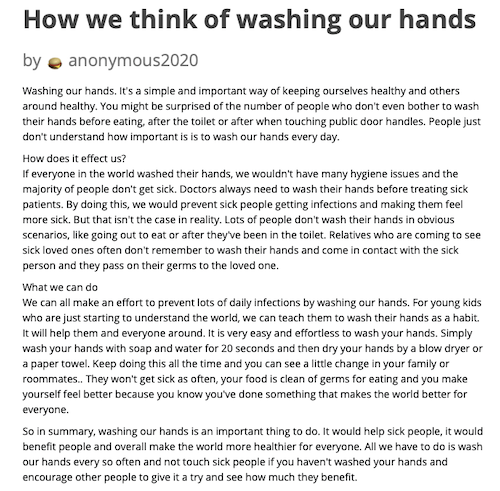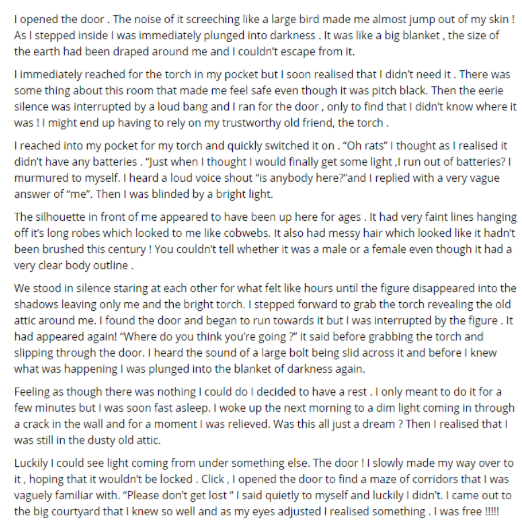#1 Reason Students Fail Their Written Expression Test (And What It Takes To Ace It)
In case you're reading this and thinking: "Yeah, yeah… writing is important. But I'm doing fine," you might be right.
Or…
You might be underestimating the tough requirements of written expression for selective schools, scholarships and NAPLAN, making one of the biggest mistakes that will cost you valuable opportunities.
You see, many students think that doing well in school sets them up for success in a competitive exam.
But this couldn't be more wrong!
Why?
Because there's a big difference between writing for school and writing for exam success.
Let me explain.
All competitive exams like ACER, Edutest, Academic Assessment Services or the Victorian selective schools test, are designed to weed out average applicants and spot high achievers. Assessment exams like NAPLAN also group students in bands from below average to above average. If you want to ace your written expression test, it's not enough to show off a rich vocabulary and perfect grammar (which get you high scores at school).
To truly stand out from the crowd, you'll also have to demonstrate:
- Ability to work under pressure. Everyone can create an A+ story when they have all the time in the world. Depending on your exam, you might have only 20-40 minutes to craft a piece. This means you need to know what to do without wasting precious seconds thinking about how to start a story, how much to write, etc. In short, you need a strategy – like the one we teach our students in our narrative writing course.
- Creativity. Two things distinguish an “OK” essay from a great one – the imaginative point of view/storyline and accurate use of expressive devices. You can easily train these skills by doing lots of reading and by modeling after top-notch essays. For example, we encourage students to use our Exam Success sample essays library to discover creative pieces that scored well and borrow the techniques and ideas for their writing practice tests.
- Thoughtfulness. This is your ability to 1) come up with worthy writing ideas quickly; 2) make your story flow; 3) use words to show emotions and create the atmosphere. You can develop thoughtfulness through learning specific writing techniques and practicing writing. You can easily set up a regular writing routine with Exam Success writing prompts library that contains 290+ written expression topics, some of which are very similar to the questions from Edutest/Acer scholarship exams and selective writing tests.
What Are Common Writing Topics In A Written Expression Test For Selective Schools, Scholarships and NAPLAN?
The writing prompts for a narrative/creative piece often come in the form of a worded statement that asks you to write about your life experiences: the events that happened to you, people you’ve met, or places you’ve visited.
Sometimes, the writing prompt comes in the form of a picture/image or as a combination of both a visual prompt and a text.
To give you a general idea of what to expect, here are some sample scholarship and selective test writing topics for grade 7 and grade 9:
- Write a creative piece to the following prompt: When I helped someone
- Write a creative piece to the following prompt: The new student
- Combine the three elements to create a story - a computer, a mouse and a tree.
- Write a creative piece to the following combined word and image prompt: A window to the other side.

- Write a narrative based on the following image prompt.

- Write a creative piece to the following combined word and image prompt: A window to the other side.





